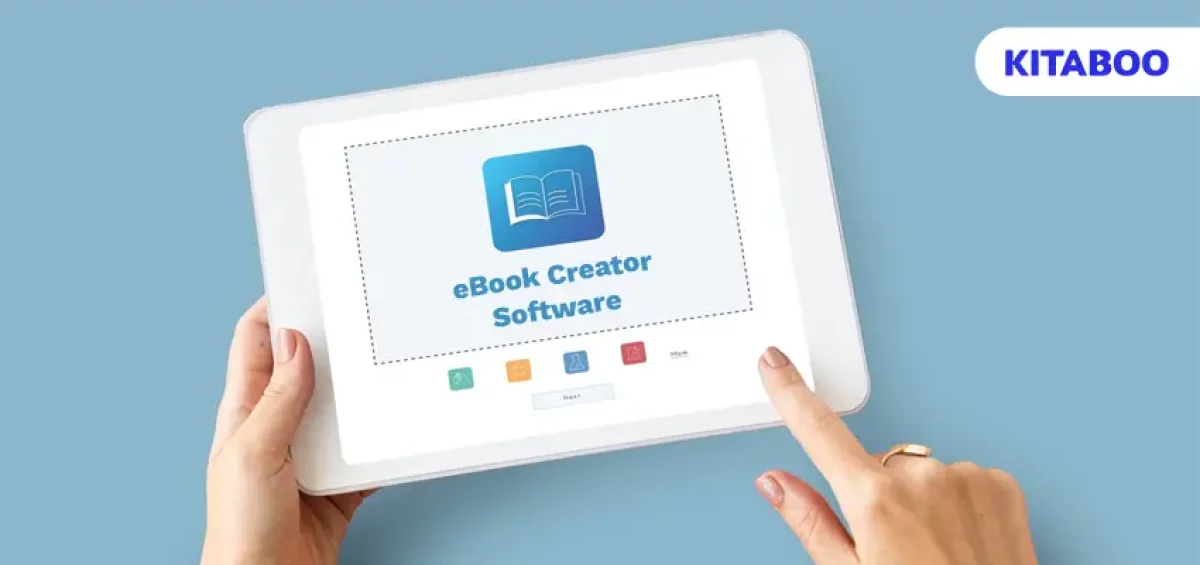The world of publishing saw a focal shift in its approach and economy with the onset of digitalization. The emergence of the eBook redefined education and learning. Education providers could now aim for a global audience where location, language, or portability would not act as hindrances.
The corporate world benefited from this by approaching employees with work-from-home jobs. Brochures and manuals could be portable and revised according to the convenience of the employees and creators. This ensured a much wider readership and learning experience, benefiting brands with an influx.
The last two decades have seen a steep rise in the creation and readership of digital fiction, which brings with it the rising need for programs and software that gives the reader and creator this accessibility to eBook creator software. In fact, the global number of eBook users is expected to increase at a rate of 9.02 % and is estimated to reach 1.1 billion users by 2027.
This is where introducing eBook creation into the industry of publishing content creates the bridge that traditional methods of learning or publishing failed to achieve.
Table of Contents
What is an eBook Creator Software?
Software for the creation of electronic books is a tool designed specifically to create, edit, and format electronic or eBooks. These applications are designed to help the writer facilitate their manuscripts online with elements from its core stylization and fonts to importing and exporting, multimedia integration, generating table of contents, etc. eBook creator software, therefore, builds up an eBook from its structural core to its aesthetic elements.
What Initiated the Rise of eBook Creator Software?
With an obvious parallel to the rise of eBook readership itself, the technical need for software that catered to the individualized and curated needs of writers and readers arose. The demand for a user-friendly and on-the-go creation became the driving force behind eBook creator software.
This need was further prompted by developers like Kindle, the former of which became a standard for any digital publications. From 2008 to 2010, a steady rise in new editing tools catering to writers emerged with features like editing, formatting, changing styles, and fonts.
The last one and a half decade has seen an entire digital economy emerging out of eBook software creation, both free and commercial. One of the pivotal reasons for the rise of eBook creator software has been the boom in self-publishing.
Authors who had previously faced long waiting lists and bitter experiences with traditional publishing and editing now found a platform suitable for and curated for their personalized work. This included accessibility for both tech-savvy and technically challenged writers.
Direct publishing aided this need, and with features like DP (Direct Publishing) and similar ones in other platforms, writers demanded their ownership of editing and formatting tools, thereby emphasizing eBook creator software.
What are The Primary Functions of eBook Creator Software?
The functionality of such software can range anywhere from programming, inputting elements and multimedia, exporting, formatting, and editing to styling your eBook, varying from one tool to the other. Here are some of the key functions:
- Formatting and Editing of the Text: This facilitates the range from typing out to formatting your core write-up. The fonts, colors, indent, and font styles all fall in this.
- Importing and Exporting: This allows the writer or user to upload and transfer existing manuscripts for further development.
- Organization: Any eBook creator software is designed with pre-set or customizable formats to show you options for the table of contents, bibliography or references, chapters, and sectioning patterns, integrating multimedia and cover design in the way you want.
- Managing the Metadata: For authors who want to curate and keep a check on their metadata, this, too, is a feature of these tools. From title, keywords, description, and indexing to author name and category, you are all covered.
- Reviewing, Distribution, and Publishing: Multiple eBook software provides direct connections to major platforms like Amazon with access to distributing and publishing your eBooks. Along with it comes the flexibility of reviewing and previewing how your eBook would read and look on various platforms and devices.
Benefits of eBook Creator Software
From authors and digital reading platforms to digital publishing agencies, eBook creator software has succeeded in giving personal access to individual writing and curating needs to the entire writing industry. Here are some of its evident benefits:
- Easy Creating Liberty and Complete Control: A user-friendly interface and complete first-hand control over your work is hard to beat. These tools are created keeping the creators in mind.
- Cost-effective Distribution: Traditional printing and distribution have far higher packages than e-alternative. Some of the tools even offer free publications. eBooks also come with the advantage of accessibility throughout the world.
- Updating, Revising, Analytics, and Insights: Fixing errors, adding notes, epilogues, and updating patterns, formats, or layouts has never been easier. All the relevant insights, metrics, and sales data are provided by most of this eBook creator software, which is a live update of how your eBook is doing.
- Interactivity and Incorporation: eBook creator software users have the liberty of interacting and incorporating various elements into their eBooks, like media forms of audio, videos, images, etc. Interacting through a varied range of forms helps in keeping the attention of readers, especially in academic and descriptive writing.
This is precisely when eBook creator software platforms like KITABOO revolutionize the methods in which crafting your creative or educational content can be easy, accessible, and personalized.
The Takeaway
Therefore, the popularity and success of eBook creator software lie in its ability to provide any author, editor, or publisher the key components of portability, accessibility, range of a larger readership, scope for rectifications, convenience, and a large digital library to work upon; all of which cater towards a better way of crafting one’s story in their own way.
Creative publishers, authors, educational publishers, and providers can access eBook-creating platforms like KITABOO to publish, distribute, market, and draw an analysis of their eBooks, along with interacting with audiences worldwide.
To know more, write to us at KITABOO@hurix.com.
Discover How An Ebook Conversion, Publishing & Distribution Platform Can Help You
Kitaboo is a cloud-based content platform to create-publish & securely distribute interactive mobile-ready ebooks.
You May Also Like









